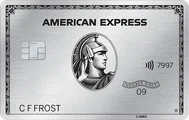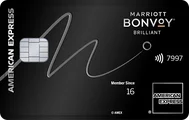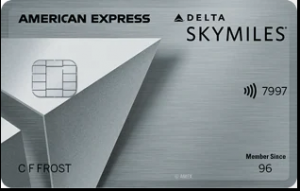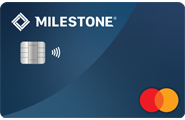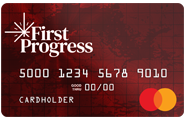Table Of Content
There are many differences between a debit and a credit card. One of them is that debit cards do not have the same consumer protections as credit cards. Therefore, disputing a debit card charge is more challenging than for a credit card.
When you dispute a credit card purchase, the timing can still give you the opportunity to withhold payment.
With a debit card, you’ve technically already paid for the purchase and your bank will have to decide whether or not to restore funds that have already been taken from your account. You have a better chance of success in a debit card dispute if you act fast and are able to present shreds of evidence such as a receipt.
Key Takeaways
- Credit cards offer more consumer protection than debit cards. Therefore, disputing debit card purchases might be a more challenging process, than in the case of credit cards.
- A debit card dispute is a situation when you have any type of disagreement with the merchant about the charge they made on the debit card.
- With most debit cards, you have 60 days to dispute a charge, after the transaction appears on the bank statement.
- To dispute a debit card charge, you have to call the bank and inform them that there is an error in the transaction and that you want it to be corrected. Here it is worth mentioning that it might take up to 10 business days for the bank to make a final decision on the matter.
Credit Vs Debit Card Chargeback: What's The Difference?
Let’s face it: between a problem with a debit card purchase and one with a credit card, you’re more likely to have better success in a dispute with the credit card.
You enjoy better consumer protection as a credit cardholder, and you could keep the money you spent in your account while threshing out the problems with the merchant.
But don’t lose hope. In a debit card purchase, you can file a dispute, and you might be able to get your money back. As a credit cardholder, you have the right to dispute a charge when there is a billing error or other issues you can’t work out with a merchant.
The law provides these rights through the federal Truth in Lending Act and the Fair Credit Billing Act.
With credit cards, you have the right to withhold repayment to the credit card company for any purchase you file a dispute with after a merchant refuses to resolve a problem with their goods or services.
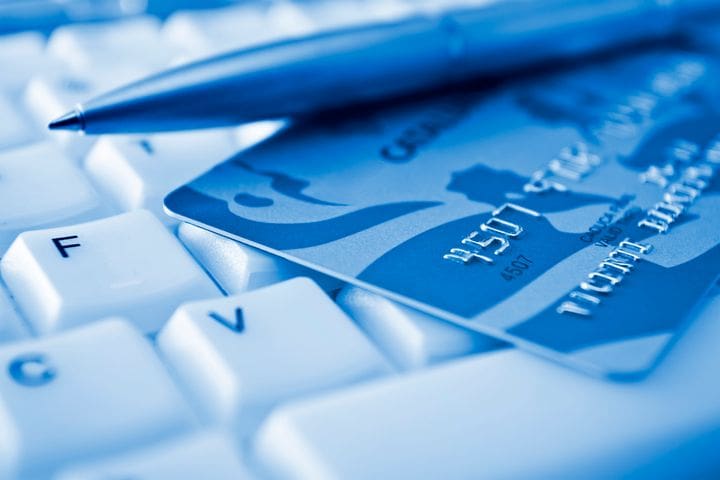
In Which Cases You Can Ask For Debit Card Dispute?
Here are some cases that would call for a dispute:
- You ordered an item, and it never arrived. For example, you ordered a camper trailer tent for $600 from an online camping equipment store, but they never delivered the item.
- The merchandise they delivered was defective or not the same as described. For example, you ordered a 21-speed bike on display in a store. When your order arrives, it has cheap substitute parts, not the original ones like the one on display.
- The merchant charged you more than the stated price. For instance, you bought a high-end bag on sale at 35% off, but the merchant charged you for the total amount and refused to refund the supposed discount.
However, the law does not provide the same protections for a debit cardholder. As a result, consumers who experience similar problems with their debit card purchases still have recourse to their concerns. If you file a dispute over a debit card charge, it is incumbent upon your bank to look into the matter.
Sign Up for
Our Newsletter
and special member-only perks.
Sign Up for
Our Newsletter
and special member-only perks.
How to Dispute A Fraudulent Debit Card Charge?
If you find a charge on your bank account statement that you are unfamiliar with, immediately check if it matches your card use or spending. Thieves will often try with small purchases, and if the account holder does not notice or fails to act, they will follow up with a large purchase.
Technically, a fraudulent transaction is one where you, as the cardholder, do not know who used your card and can declare with absolute certainty that you have no knowledge of such transaction.
-
The Differences Between Disputes and Fraud
The basic distinction to know whether a transaction is fraudulent or disputable is whether the cardholder knowingly or willingly made the transaction with the merchant in the first place.
There are many reasons why a dispute may arise between a cardholder and a merchant. Some of them are: overcharging the cardholder, charges for undelivered merchandise or continuous charging for a subscription that the cardholder has already canceled.
If the cardholder has never initiated or authorized a transaction which the bank processed, the cardholder may file for a fraud claim.
-
How To Make A Dispute?
You can always check a charge against the named merchant on your statement and match it with your past purchases. When you want to dispute a charge, you have to call your bank and ask it to cancel the error so that they can restore the balance of your account to its previous level.
But do note that it may take the bank up to 10 business days to make a final decision. You can make your request through the bank’s customer service hotline. The bank usually posts the number on its website or on the back of the card itself. Report the fraudulent charges immediately, and don’t forget to provide as much detail as possible.
For example, provide a copy of the receipt that shows a different price from what the merchant charged you or show that a purchase has been made at an online store where you have not created an account.
In recent years, it has become more commonplace to make purchases online or use contactless payments. Unfortunately, this can increase the vulnerability to credit card fraud. In this chart, using Nilson Report data, we can see that worldwide credit card fraud has increased from $13.7 billion to $28.65 billion .
-
Follow up on Your Dispute With a Written Letter
Even if you’ve called the bank and talked with a customer service representative, follow up your dispute with a written letter.
Make sure you indicate your bank account information, your name, your report reference number (if the customer service rep gave you one), when you first noticed the fraudulent charges, and when you first reported them.
If you want a sample letter, you can go to the website of the Federal Trade Commission . Keep a copy of all documents that you send to the bank and write down the times and dates of all the follow-up calls and messages you make.
You would find it more difficult to dispute a charge if you’ve lost or compromised your PIN or if thieves were able to guess it. An authorized person who uses your correct PIN or card security code or makes it appear that you’ve authorized the purchases.
In general, PIN purchases are more difficult to dispute than purchases that you sign for. Choosing to process your debit card transaction as a signature-based credit card purchase will force your bank to follow the dispute rules set by the credit card companies.
This could offer you better consumer protection and get a favorable decision quickly if you support your argument with evidence such as purchase receipts.
-
Should You Cancel Your Debit Card?
You may not need to cancel your debit card if it’s just one fraudulent transaction that you’re disputing or when the merchant overcharged you for an authorized transaction. If you want to protect yourself from being exposed to fraud, just change your PIN.
However, if you suspect that your personal information has been compromised, canceling the card might be a lot better. An indication that thieves have stolen sensitive info is if you notice multiple transactions are showing up over a short period of time.
Before you cancel your debit card, you might want to update your details with merchants that have your saved card information. These are merchants where you have online subscriptions or where you have automatic payment agreements such as a monthly subscription fee for New Chapter.
In the case of subscriptions, you will have to contact each merchant to update your information details before the cut-off date for payment so that your products, services or access will continue.
2. Dispute A Debit Card Charge Due To Disagreement
Any time you have a disagreement with a merchant or contest about a charge they made to your debit card, this qualifies as a cardholder dispute. Some examples: You initiated and subsequently canceled a transaction but the merchant still charged you for it.
For example, you reserved a hotel room online and later canceled it in accordance with their cancellation guidelines – but the booking website still charged you for the room.
You purchased an item through your debit card but later returned the item to the merchant but they never returned the money you’ve paid back into your account. The merchant charged you an erroneous amount for a purchase.
For example, they debited $500 instead of $50. You have an issue with the quality of the products or services that the merchant provided.
Increase Your Chance Of a Successful Dispute
A debit card dispute can come out for or against your favor – there’s no guarantee that you will be successful all the time.
However, there are steps that you can take to increase your chances. Here are 3 of them:
-
Get In Touch With The Seller First
Regardless of whether you used a credit or a debit card, you may be able to resolve the issue if you deal directly with the retailer or service provider first.
Remember that most merchants look at their customers as their lifeblood and would want to retain their business by keeping them satisfied.
-
Always Be Reasonable
Customers that a chargeback is a remedy when the merchant is in the wrong and not in cases when customers simply changed their mind about the purchase they’ve made.
If you buy something and then you decide you don’t like the color, you need to take that up with the merchant.
-
Be Prepared To Prove Your Case
When you file for a dispute to your bank, you should be able to clearly show why they should decide in your favor by providing compelling evidence to support your claim.
For example, you might include a copy of the receipt that shows the merchant charged you $199 for an item that they advertised in an online catalog as $99.
Or provide them with a service contract or emails from the merchant promising a refund that never came or a photo of the defective item.
Can You Dispute a Debit Card Charge After 90 Days?
Creditors are required by law to acknowledge your complaint in writing within 30 days of receipt. Then, within two billing cycles, and no later than 90 days from the day your creditor received the disagreement, anticipate a written resolution. You usually have 60 days to dispute a charge once it shows on your credit card account.
The Fair Credit Billing Act establishes this time restriction, which applies whether you're contesting a fraud claim or a transaction that didn't go as planned.
What Happens If I Dispute a Charge and Lose?
FAQs
How to dispute a charge on debit card Bank of America?
You will need details about the charge or credit card dispute, such as the billing statement on which it appeared, the amount, and the merchant. During the dispute procedure, no fees or interest will be charged on the disputed amount.
If a transaction was posted incorrectly, your account will be updated accordingly. If the transaction wasn’t an error, you’ll be notified about any interest or fees that may apply during the dispute process. To dispute a credit card transaction, you can call Bank of America at 1-866-266-0212.
How to dispute a charge on debit card on citi?
You have two alternatives if you wish to contest a charge. The first option is to call Citibank and explain the situation to a customer care representative. If you already have an online account, the quickest option is to go to your “account details” page online. Log in to your account (or make one if you don't already have one). A list of all your charges will appear, arranged by transaction date. Each entry will also have a down arrow next to it.
On the charge you want to oppose, select the down arrow. Select “dispute charge” from the drop-down menu. This will expedite the process and notify Citibank that you believe there is an issue with a charge on your account.
How long can you dispute a debit card charge?
The discovery of an incorrect transaction on your credit card account may be a major hassle. Under the law, you are expected to challenge the charge within sixty days of receiving the first bank statement with the inaccuracy, according to the legislation.
There are options of filing a disagreement in writing or verbally, though in most cases, the bank may require you to provide written confirmation of the dispute within 10 days after an oral dispute.
If the bank believes the basis for the dispute is genuine, it will authorize a chargeback and credit the account with a temporary credit.
With credit cards, this typically takes effect right away, while with debit cards, it may take a few days. This is because debit cards are linked directly to your bank account, whereas credit cards are connected to a credit provider. If the bank approves the charge or the dispute is resolved in your favor, the credit will become permanent.

